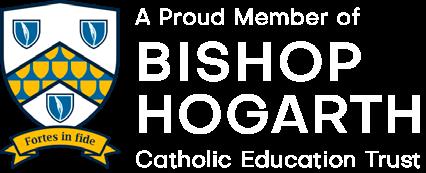




‘from tiny acorns, mighty oaks grow’
Nursery brochure

Little Wrens Nursery is a community nursery, staffed by qualified teachers, enhanced teaching assistants and support staff. All staff are highly experienced, who work closely alongside all the children. The staff take time to listen to the children and their interests, which often results in both the children and staff going on their own learning journey together. Every child is important to us and we celebrate diversity. We therefore ensure that everyone is included, everyone matters and all their individual needs are met. Together, we work hard to ignite the spark each child has to develop their natural curiosity and create a wonderful sense of awe and wonder.
‘Pupils have the utmost pride in the school. They cannot think of a single thing they would like to change. They know that their views are important and valued by adults in school. Pupils are keen to take up the many leadership opportunities on offer.’
Ofsted

We are incredibly proud of the learning environment here at Little Wrens, and as we see it as the third teacher, there is a great emphasis on what our nursery environment has to offer each and every child. Staff often use natural, new or interesting objects as provocations for the children to explore and investigate, which helps to provoke interest and deepen their knowledge and understanding. Our aim is that all the children who come here flourish and become independent, confident, caring and responsible young learners,who leave here with a real love of learning.
I hope you find our brochure useful and should you require any further information, please do not hesitate to contact the school and we will do our very best to help.
We look forward to you joining our school family, and sharing in your child’s very special journey …
Mrs Box

Our pedagogy is:
Rooted in our values and beliefs about what we want for children
Informed by our understanding of how children learn and develop and the practices through which we can enhance that process
Reflected within the nursery environment, both indoors and outdoors, that we provide
Supported by knowledge, theory and experience
Our shared values and beliefs, we understand that:
Children are born ready, able and eager to learn and that they actively reach out to interact with other people, and in the world around them
Development depends on each unique child having opportunities to interact in positive relationships and enabling environments
Building a partnership with parents and carers, based upon supportive, trusting relationships, supports children’s development and learning
If we want to know who children are and what they can do we need to ensure we are giving them the opportunities to show us
Within our practice we prioritise:
Using our developing understanding of the ‘The characteristics of effective teaching and learning’ (Stewart, 2011) as a starting point for thinking about the provision we make for the children in our setting, aiming to instil motivation to not only succeed in Early Years, but to also become lifelong learners.
Gaining greater understanding of the individual child through observation, documentation and reflection
Using this knowledge and understanding to make decisions about how we can best support the child’s development and learning
Ensuring the environment, both emotional and physical, offers each child appropriate challenge and motivation.

‘Motivation is more important than intelligence and is the key to success for children and adults’




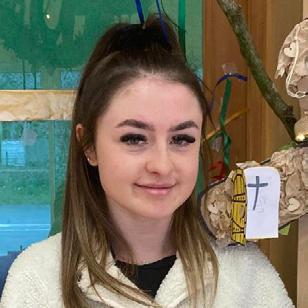

Here at St. Mary’s, right at the heart of our approach to learning is the very powerful image adults have of children. Every child is seen as strong, confident and competent. Strong children have their own ideas, express opinions, make independent choices and are able to play and work well with others.

This powerful image of the child needs adults who listen to children and trust them to make responsible decisions. At Little Wrens the adults listen attentively to the children to what they have to say and think, and their ideas are taken seriously. From the day they start with us they learn they have a voice… a very important, valued voice.
We are incredibly proud of the relationships we build with our children, their families and our local community and we encourage both children and adults to learn from each other and respect the feelings and views of others.

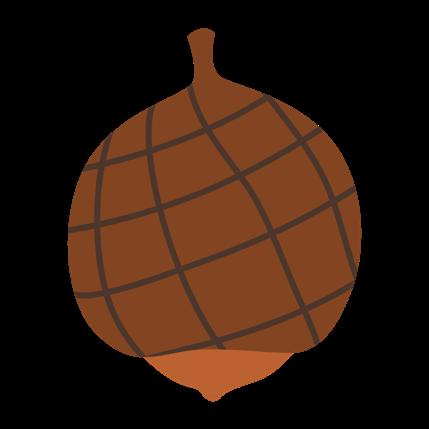

Morning Session
9.00am Welcome and Register
Children arrive and self- register with their key worker. They gather together to say hello and listen to what activities are on offer in each of the areas. These activities will be carefully planned, based around what the children already know; their skills and knowledge and how it can be built upon; what the children want to know; the thing or topic that is motivating them to learn and ways in which staff can extend previous learning opportunities.
9.15 am Main Play Session
Children are able to access the whole of the Nursery inside and out! Some staff are based in areas while others are working on focused activities with individuals or small groups of children, based around our play-based curriculum and individual needs of our children.
*10.30 am Snack
Snack is an important part of the provision in nursery and children are involved in preparing their snack, setting up the table and also clearing away. Snack at Little Wrens is so much more than eating! It is a time to encourage independence, develop social skills and develop language and vocabulary. It is also an opportunity to teach children how to make healthy choices. Children bring a piece of fruit from home each day and contribute towards our ‘shared snack’ which will be a mixed fruit salad. All nursery children will also receive milk, free of charge if they wish. They will also have access to water throughout their sessions as and when they need refuelling and to keep hydrated.
10.45 am Main Play Session
Children are able to access the whole of the Nursery inside and out! Some staff are based in areas while others are working on focused activities with individuals or small groups of children, based around our play-based curriculum and individual needs of our children.
11.20 am Tidy Time
Tidy up time is an important part of the session as it encourages children and staff to have respect for the Nursery environment, the resources and each other as they tidy up together. We encourage the children to develop a real sense of pride for their environment.
11.30 am Gather
We gather together at the end of the session as one whole group; individuals or groups of children may want to share some learning that has taken place during the session, and to plan for our next steps for the following day. A short time to review and reflect.
11.40 am Small Group Time
Children and staff gather together into small groups. Staff plan a group time based around our core book; this may be presented in a range of ways for example- a story time, a music and movement session, or a sensory activity before lunch.
12.00 pm Home time for morning only places.
Afternoon Session
12.001.00 pm

Lunchtime Provision
Children are very much involved in preparing and setting the tables for lunch before enjoying a meal with their friends. Such an important time for nursery aged children and a learning experience in itself.
For 30 hour children you will need to pay for your child’s school meal which costs £2.75 per day. Lunches are made in-house. Children can, if you wish bring a packed lunch from home.
1.00 pm Welcome and Afternoon Register
Children self -register with their key worker. They gather together to say hello and listen to what activities are on offer in each of the areas. These activities will be carefully planned, based around: what the children already know; their skills and knowledge and how it can be built upon, what the children want to know; the thing or topic that is motivating them to learn, and previous days learning; ways in which staff can extend previous learning opportunities including those from the morning sessions.
*2.15 pm Main Play Session
Children are able to access the whole of the Nursery inside and out! Some staff are based in areas while others are working on focused activities with individuals or small groups of children, based around our play -based curriculum and individual needs of our children. Additional experiences will also be embedded within the afternoon sessions- based on the interests of the children.
2.30 pm Snack
Snack is an important part of the provision in nursery and children are involved in preparing their snack, setting up the table and also clearing away. Snack at Little Wrens is so much more than eating! It is a time to encourage independence, develop social skills and develop language and vocabulary. It is also an opportunity to teach children how to make healthy choices. Children bring a piece of fruit from home each day and contribute towards our ‘shared snack’ which will be a mixed fruit salad. All nursery children will also receive milk, free of charge if they wish. They will also have access to water throughout their sessions as and when they need refuelling and keep hydrated.
2.40 pm Gather
We gather together at the end of the session as one whole group; individuals or groups of children may want to share some learning that has taken place during the session, and to plan for our next steps for the following day. A short time to review and reflect.
2.45 pm Small Group Time
Children and staff gather together into small groups. Staff plan a group time based around our core book; this may be presented in a range of ways for example- a story time, a music and movement session, or a sensory activity before home.
3.00pm Home Time*
If you are a parent with other siblings in school who finish at 3.30pm, then nursery children can stay until 3.30pm for a small charge of £1.50.
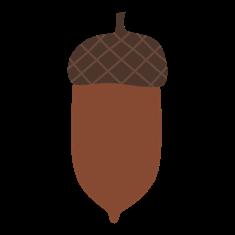
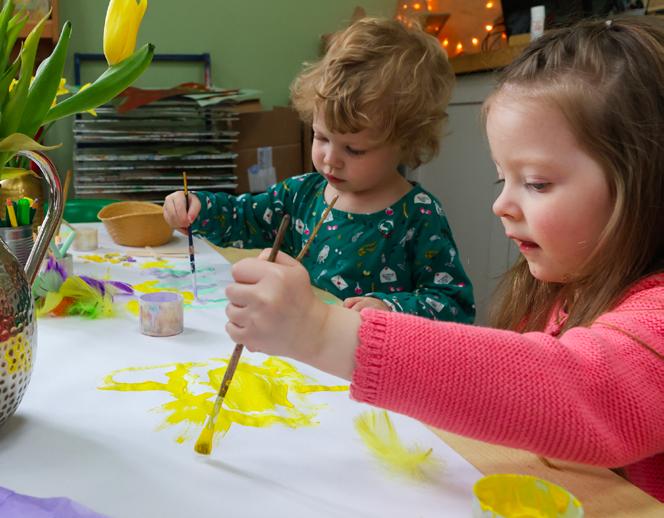
3 year olds will be able to start a funded nursery place in the September, January or April following their third birthday. Consideration may be given to unfunded places prior to the term after their 3rd birthday.
These are the cut off dates:
Birthday on or before 31st March Summer Term (April)
Birthday on or before 31st August Autumn Term (September)
Birthday on or before 31st December Spring Term (January)

Your child will be eligible for either:
1) 15 hours free nursery education per week during the school term time
All 3 to 4-year-olds can get 570 hours of free early education or childcare per year. This is taken as 15 hours per week free of charge; either 5 morning (9.00 - 12pm) or 5 afternoon sessions (12.30 - 3.30pm) term time only. We can be flexible and may be able to offer 2.5 days for the 15 hours provision.
In addition to the 15 free hours, we do however provide paid childcare from the hours of 8.00am - 5pm should you need it. 10
Some working families may be eligible for 30 free hours childcare per week for their 3 and 4 year old children if the criteria is met. You are able to find information about eligibility on the government website or by contacting us for further information. If you are eligible for the 30 hours free nursery education your child can attend: 5 days: 9.00am - 3.00pm (term time only)
In addition to the 30 free hours, we do however provide paid childcare from the hours of 7.45am - 5pm should you need it.
Attendance at Little Wrens does not however guarantee a place in Reception class at St. Mary’s when your child is of school age.
Should you be interested in securing your child a nursery place, please contact us where we will be able to provide you with further information around the admission process. Places are allocated according to dates of birth. September birthdays will be admitted first. We follow the Diocesan admissions policy which is also available on our main school website.
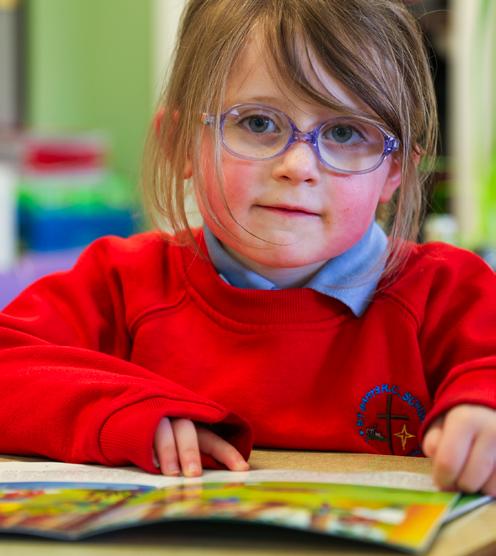
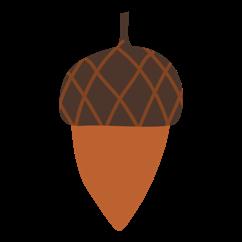
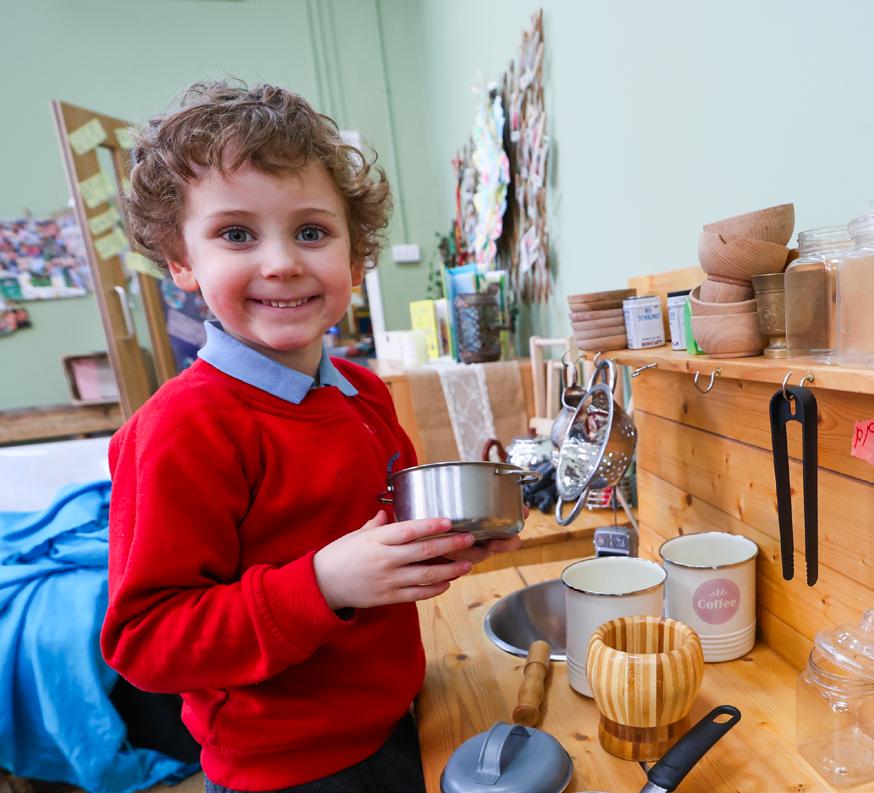


Nursery children should wear the red school jumper/cardigan and blue polo shirt. To make toileting easier for the children and to encourage independence, nursery children should wear either grey jogging bottoms or black leggings. However, if you feel your child would manage wearing grey school trousers or a school skirt/pinafore then we would love to see them in full uniform too.
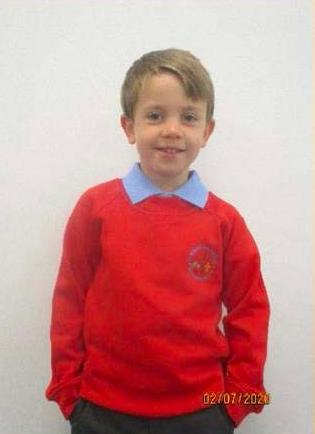
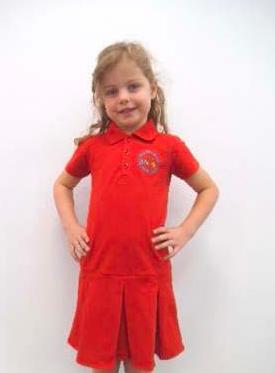

Children should always have a spare change of clothes in school including pants and socks. Each child in Little Wrens will have their own basket for their personal belongings and we ask that all clothes, including coats are clearly named.
We provide waterproofs and wellies for our outdoor adventure but if there are days where your child needs to bring additional items then we will let parents know in advance. Any issues please get in touch with the office and Mrs Sedgewick or I will be happy to help.
Click here to visit the order site for Etika, our ethical uniform supplier.
“Each child has a spark in him/her. It is the responsibility of the people and institutions around each child to find out what would ignite that spark.” Howard Gardener.
Our team of staff work hard to build positive relationships with the children and ‘tune into’ individual interests and needs, to then plan the learning environment around these. Although the heart of the areas and the pedagogy within those areas remain the same, resources and ‘workshop areas’ are changed on a regular basis to ensure the ignition of sparks remains constant.

The Garden is a place where natural curiosities are there for the taking; a place of wonder, fascinations and a place to be free. The outdoors is unique in that it provides a diversity of natural resources and spaces that cannot replicated indoors; resources and experiences which help develop the skills of enquiry, critical thinking and reflection necessary for our children to meet the social, economic and environmental challenges of society.
Outdoor play allows children to connect with the natural world through experiencing the elements: water, air, fire and earth, seasonal and changes, growth and decay, and changes over periods of time. Our outdoor space is deliberately flexible and very few areas/resources are ‘fixed’. We are also able to offer additional spaces such as the outdoor fire pit, den building areas and mud kitchens.

The Reading Den/Stage is a calm place that inspires imagination through core texts. This area allows children to learn about themselves and the world around them, and to step into new imaginary worlds. It allows them to connect with characters through sharing a book, reading alone or through role play. Dramatic play can be defined as a type of play where children accept and assign roles, and then act them out. It is a time when they break through the walls of reality, pretend to be someone or something different from themselves, and dramatise situations and actions to go along with the roles they have chosen to play. The cosy corner/stage offers many realms of expression from storytelling, performing, singing, dancing, and role playing. Far more than a reading corner!

The Kitchen is a place where children are involved in preparing their daily snack and setting the table. They even cut flowers from our school garden in the summer to add to their vases! Access to snack times and free access to water are an important part of our daily routine. Having an area for small group snack times in the kitchen area provides an ideal opportunity for focused conversation about what children have been doing, for practising the skills of pouring drinks and cutting fruit and for appreciating the importance of being polite and helpful to one another.
By recognising all of the social learning opportunities which exist around sharing food, snack time is an important part of our daily routine for nursery children. Children also work in small groups to participate in baking activities and skills in this area too.

Home Corner/Role Play is a place that allows children to make sense of their immediate world. Children have numerous opportunities to work together, express their feelings, and use language to communicate roles and respond to one another’s needs and requests. It is a perfect opportunity to develop early attitudes towards culture, diversity and celebrate difference. Children are able to explore the ideas they have from their own cultures and stretch their imaginations.
‘On Site’ The early years foundation stage refers to construction in many of its 7 areas including physical, mathematics and expressive arts and design. Our ‘On Site’ area allows children to play, explore, actively learn, create and critically think all things which are crucial to a child’s learning and achieving. Construction involves anything a child can design, build, balance and create from and does not have to have a set goal in mind. Our natural, open ended resources allow for a wealth of construction to happen with children creating and changing their minds as they add or take away pieces to their masterpieces.

With adult guidance but not interference; personal, social and emotional development can be supported through showing you value their opinions and ideas, by encouraging the sharing of the resources and through praise and the sharing of their achievements.

It is often good practice to leave a space where children can display and be proud of their construction models or leave a camera out so the children can take photos of their architectural designs or ideas. ICT is embedded into this area to engage, motivate and encourage scientific and mathematical language.
The Studio is an open invitation for childled artistic exploration, an opportunity for trying out ideas and playing with materials. It is a place where children and adults can freely get messy, design, play creatively and follow their own interests and curiosities. The rich range of resources provided inspire creativity, expression, imagination, a sense of identity and enable children to develop their own cultural languages. Many learning opportunities are provided through resources such as natural loose parts, clay, textiles, light and shadow, painting, drawing and many more.

The nursery curriculum is planned within the Early Years Foundation Stage Framework from birth to five years old to provide a range of learning experiences through which children have opportunities to;
✔ Play and explore
✔ Be involved in active learning
✔ Be creative and thoughtful
Nursery staff plan together to ensure that the curriculum is broad and balanced across the following areas of learning;
✔ Communication and Language
✔ Physical Development
✔ Personal, Social and Emotional Development
✔ Literacy
✔ Mathematics
✔ Understanding of the World
✔ Expressive Arts and Design
During each session, staff work with children observing and assessing their levels of skills, grasp of concepts and interests. Observations form part of the records kept for individual children and help staff to analyse what learning is taking place and how they can support and extend it.

When your child starts Little Wrens, they will participate in:
A visit to the local library in Barnard Castle: aimed to help children develop their local knowledge of where they live/come to school (a lovely local link) and also to foster an early love of reading. Children will each become a member of the library and can loan books from the library to take home too.
Outdoor Adventure: where children spend time in the great outdoors exploring, investigating, playing and getting creative. Activities may include a trip to Deepdale Woods, a visit to Bowes Museum, a session around our school fire pit, or a trip to the local market to buy fruit for school.
You can access the Early Years Foundation Stage curriculum by clicking here.

Full Time 30 hours 5 x full days (full day session 9-3pm)
Part Time 15 hours 5 morning or afternoon sessions
Morning session (9-12pm session)
Afternoon session (12.30-3.30pm session)
Children may stay for additional sessions depending upon availability. Additional sessions are £15 for half day and £25 for a full day (9-3pm)
This is included in the nursery provision for afternoon sessions and 30 hours places.
Children can bring a packed lunch if you would prefer to. Please see the link below to the packed lunch policy.
School lunches are available from our school kitchen. Meals cost £2.75 per day and are provided in-house.
View our Packed lunch policy by clicking here.
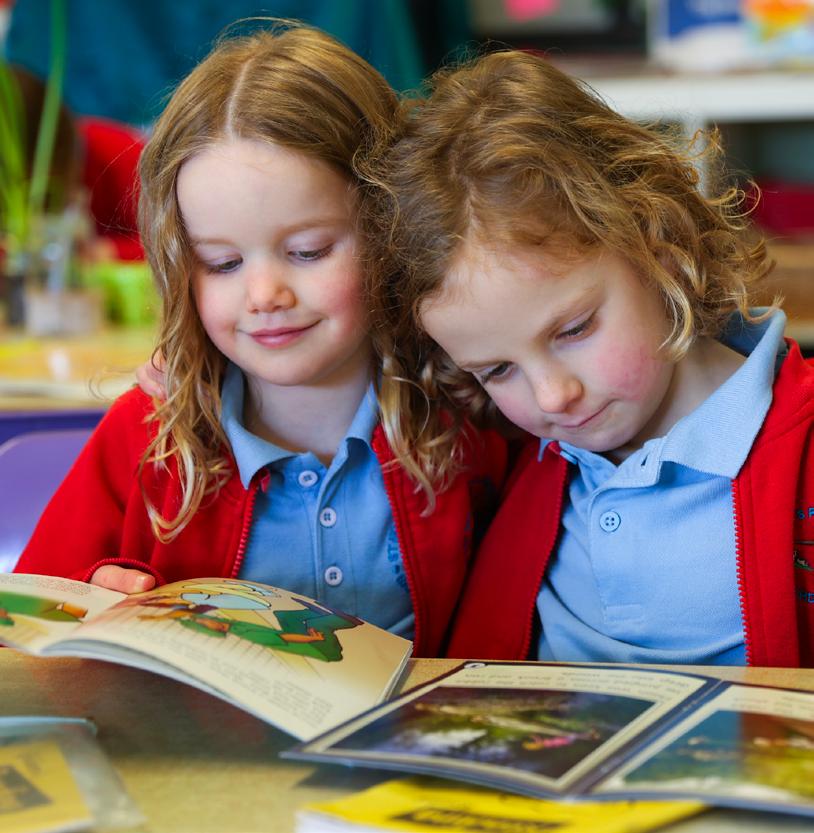
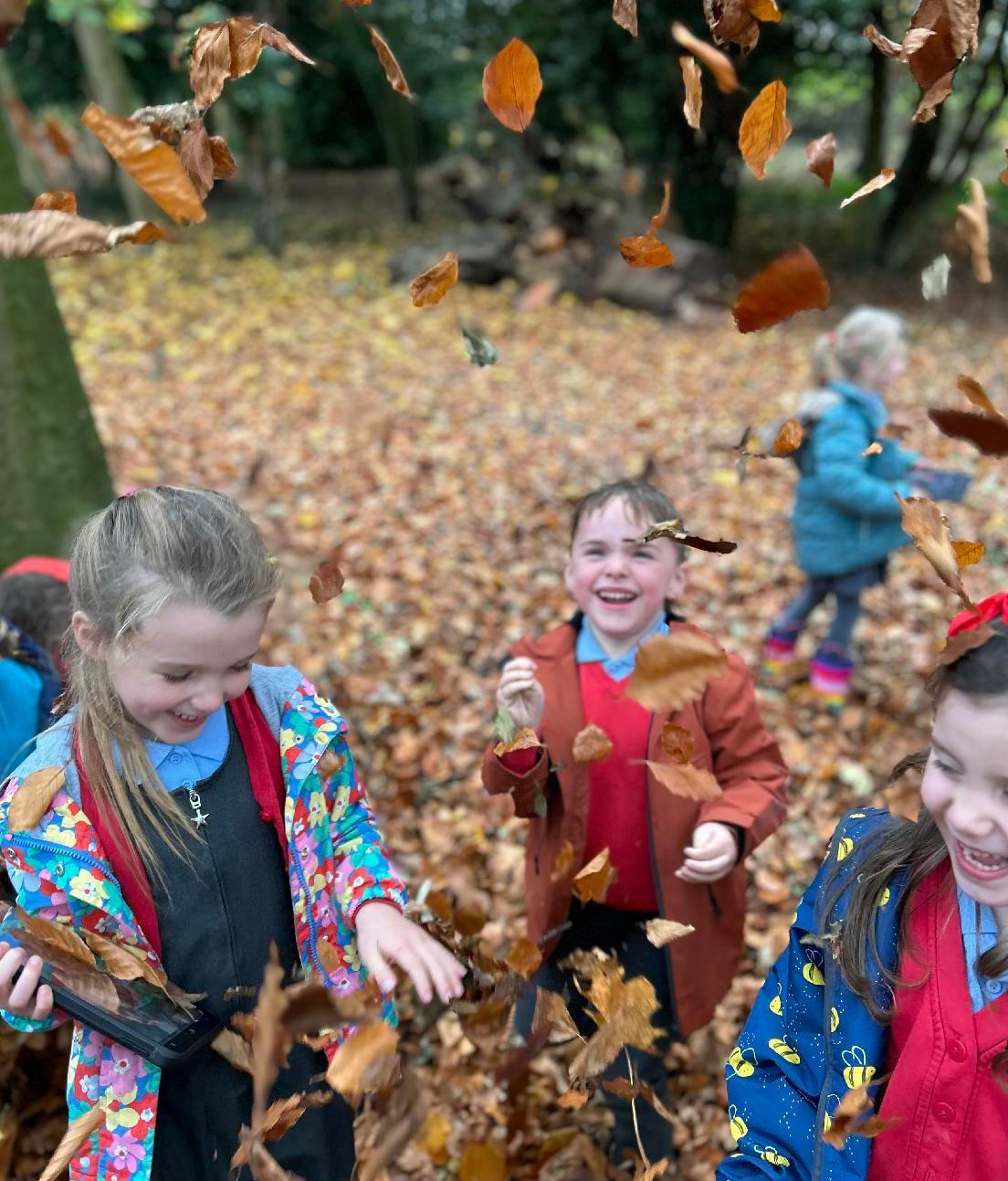


We recognise that parents are the first educators of their children. We would like to work with you to get the most out of his / her time at Nursery. We welcome you to join in the Nursery activities where, when and however you can.
✔ Spend time when you arrive at the end of a session talking with your child about what has been happening that day
✔ Take time to look at the Around Nursery/school section of the website - there are lots of photographs on of the children enjoying their learning
✔ Come along to our stay and play sessions/fundraising events
✔ Comment on your child’s learning journal/diary to share in their achievements
✔ Newsletters are sent home weekly – let us know if there is anything you would like included in the newsletter
✔ Parent / Key worker meetings are held three times a year.
✔ Remember, however, that your child’s Key Workers will always make time to talk with you

✔ Join our Friends of St. Mary’s group - a great way to get involved with school/nursery life there are lots of photographs on of the children enjoying their learning
Every day we have a healthy snack consisting of a drink of milk and a piece of fruit. Sometimes we have different food linked to special occasions, e.g. Christmas or Chinese New Year. We may ask for a small contribution towards ‘special snacks’ such as these, otherwise children just bring in their own piece of fruit from home.
We can use all kinds of things that would otherwise be thrown away. Some examples are: Junk materials – empty boxes, wrapping paper, wallpaper, material, wool, string, buttons, sequins, beads and ribbon. Natural materials – shells, acorns, dried flowers etc. We will keep you informed if and when we are low in stock!!
Fund raising activities are planned throughout the year. We would be glad to hear from anyone who has ideas for enjoyable activities or who would like to help in any way.
Our highly trained and skilled team of Early Years practitioners will be able to assist you with any queries you may have regarding learning and the curriculum in the Early Years. For any other queries including admissions, childcare costs and payments, and general enquiries our school office manager, Mrs Sedgewick is our School Business Manager.

Safeguarding - please see the school website safeguarding section for further information regarding safeguarding and child protection


Mrs Box is our Designated Safeguarding Lead. Mrs Porter is our Deputy Designated Safeguarding Lead.
Additional days - we can offer, subject to availability additional sessions if you are entitled to 15hours. We ask that you give nursery as much notice as possible to avoid disappointment and secure a place.
If your child is ill - If your child is ill we ask that you inform school as soon as possible. You will still be charged for the sessions if they are additional to your entitled hours funded by the government.
Weduc - Prior to you child starting Little Wrens you will be given login details for our Weduc App. This is our preferred way of communicating with parents and is where you will find other useful information such as forms, news-feeds, newsletters, links to websites, home learning and so much more.
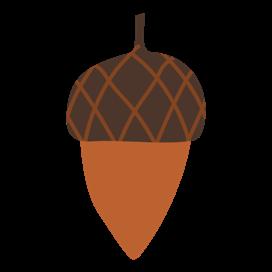


Learning Journals - We will document your child’s learning journey using observations, photographs and annotations. The learning journal will be handed over to the parent at the end of their time in EYFS. We are hoping to use Tapestry to document the children’s learning as we love the way parents can become involved in the journal sharing comments, stories as well as pictures and photographs from home.
Key Person - Each child will have a ‘key person’ who they will build a special relationship with during their time with us. Whilst all adults will work with all of our children, the key person will be responsibility for key aspects of your child’s learning and also to communicate with parents. We will inform you, once your child starts Little Wrens, who their key person will be.
